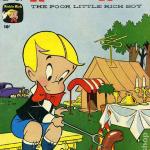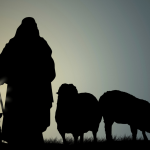Continuing to reflect on the reference to books recording deeds and a book of life in Revelation 20 (and elsewhere), I wonder if this isn’t simply an expression of the dual emphases in some strands of Judaism and Christianity, maintaining both divine election and human freedom. And so human beings are said to be judged according to their works, and yet their lives and choices are connected with whether their names were written in the book of life, perhaps (depending on how one translates Revelation 13:8) written there before the foundation of the world. Of course, it is still said that one’s name can be removed from the book of life (22:19), and so perhaps the author doesn’t adhere to some sort of absolute, unalterable, eternal predestination. But it is also possible that he asserts both divine sovereignty and human freedom. Even if assertion of human freedom and divine sovereignty may seem to some self-contradictory, and may perhaps in fact be a logically incoherent position, that doesn’t mean that the author of Revelation could not have held such a view, maintaining the two in tension.
What do others think? In the Book of Revelation, does the “book of life” seem more likely to represent a list of those whom God has chosen, a list of those who have faith, or simply a list of those who would be shown to be righteous at the last judgment, thus indicating divine foreknowledge?

















